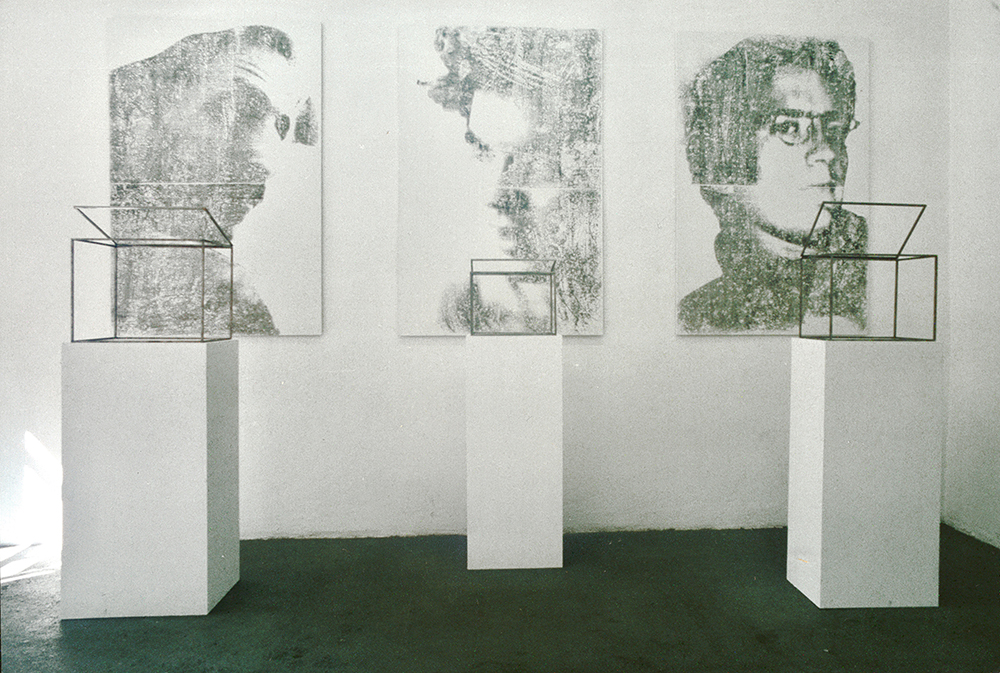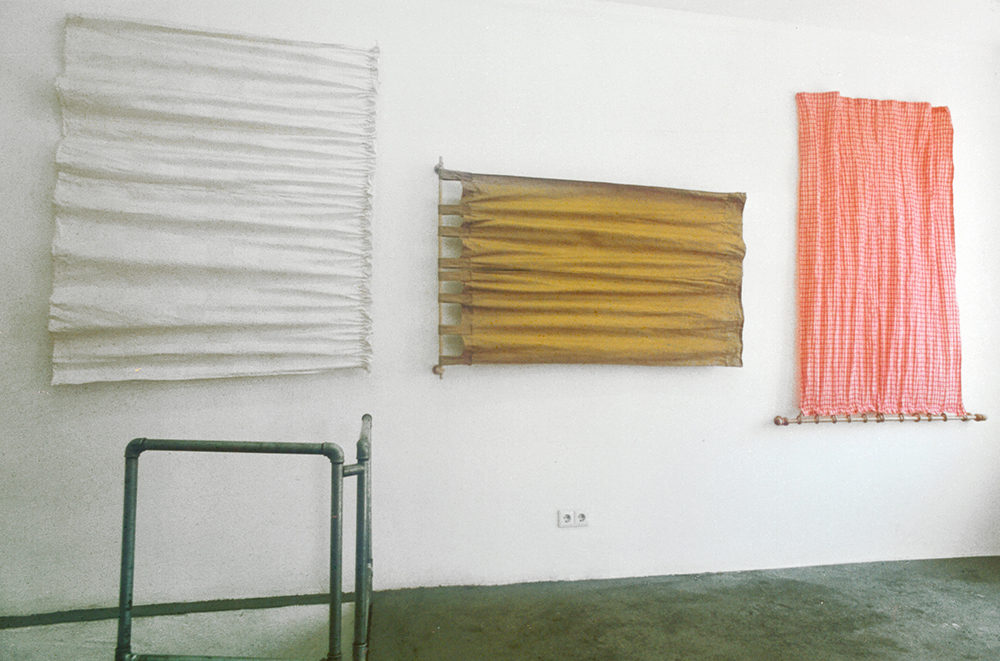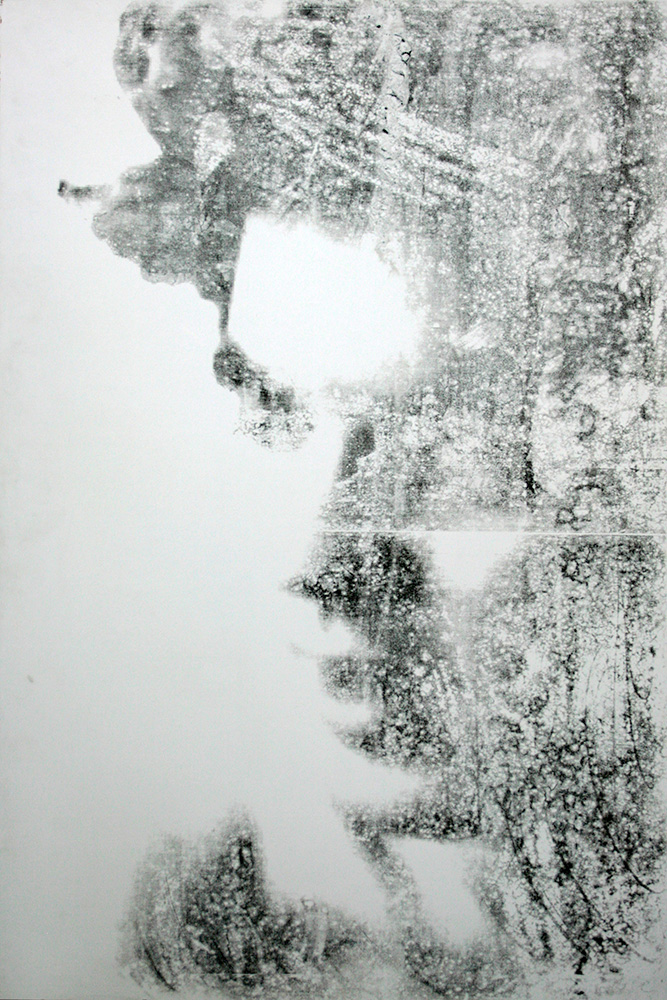|
Ohne Traurigkeit (without sadness), 2001, different materials
Ohne Traurigkeit (without sadness), 2001, detail |
Without sadnessSadness, as the title suggests, is in this installation oddly averted,
but then the work is also about its absence. If sadness is avoided
here, then that also impacts the expressivity of the installation: the
objects retain, in spite of a formal clarity, even beauty, an unusual
inaccessibility- it is left to the viewer to tie together the central
themes and the lines of connection between them. Fixed in the center of
the room, discomfortingly and as if needlessly integrated in the
installation, the position of the observer becomes another point in the
communication-less frame of reference between the three portraits, the
three metal box frames and the three off-kilter curtains. Objects, that
appear to be the same distance apart from one another, as the viewer is
to them. They don't stand for themselves at all and are even defined ad
absurdum by their practical use value.
And the viewer, whose position is integrated into the spellbound and
senseless nature of the objects, who occupies the middle of the room,
first perceives the space and recognizes, that outside and inside
simultaneously offset, even inhibit one another. Thus even the
construction of a border line, that invisibly precedes all the
permutations, all the implied locations, remains unrecognizable in the
installation, impossible. The viewer is at the same time always outside
and inside- he is outside the boxes, whose own interior appears in turn
to be facing outward. He is watched from above, but the three faces
show themselves to be introverted, absent-everything representative
about them worn away-and they deny the gaze of the beholder. If one
turns to the left, one feels again on the inside: but behind the
curtains there is no outside from which to seal oneself off, only a
wall in front of which we are standing. Everything in this installation
is invisible wall, there is no over there, there is no possibility for
entry, there is only emptiness, redundancy, and beauty. There is no
possibility for sadness, or perhaps only where the artist himself
offers a word: in his title, that sets the theme and at the same time
establishes the line of separation and, that in so naming, makes a
claim for the presence of sadness.
|


